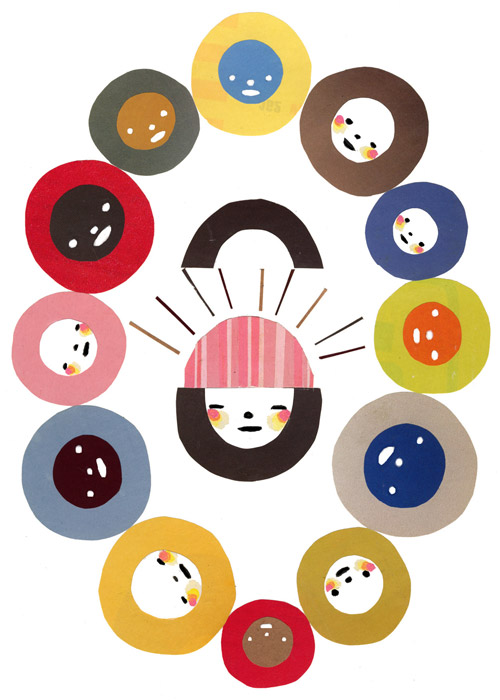A rose is a rose is a rose. But a fan is "a person with a liking and enthusiasm for something", while a sports fan is an "enthusiast ... for a particular athlete, team, sport, or all of organized sports as a whole." Fan loyalty varies by sport; unconditional love in the NBA is second only to Major League Baseball, according to a 2000 survey conducted by psychologist Robert Passikoff, which ranked the National Football League and the National Hockey League 3rd and 4th (Wikipedia).
For everyone out there who nearly took a swing at a well meaning neighbor/relative/person-who-does-not-live-in-Ohio who stood by saying "it's a business" while you were frantically shredding your 23 jersey before your tears put out the bonfire, it is small comfort to know that Matthew D. Shank believes "fan loyalty in the U.S. is perhaps higher towards sports teams than any other form of consumer loyalty to goods and services." Any self-respecting, Q-shaped pretzel-chomping, Wild Thing wig-wearing Clevelander could have told Shank to save his survey money; the Cavs reside on sacred ground where goods and services bow to Jumbotron replays, broken hearts and Throwing the Hammer Down.
Mr. Shank, who clearly never stood among the 20,562 waving white towels never never never giving up hope for a miracle, believes loyalty can be threatened. In fact, Wikipedia reports Shank saying:
"Fan loyalty towards professional level sports is beginning to erode in the U.S. as a consequence of continual threats to uproot a franchise and to move it to a new town."
Been there, done that. I have two words for Mr Shank - Dawg Pound.
Oh, and in case no one said it to you personally, Robert Passikoff told the AP shortly after The Decision:
"Friendship and talent and such is wonderful, but James himself said it last night: It's a business."
Sports sociologists and psychologists have tried to pin down the essence of fanhood for years. Wikipedia tells us that Dan Wann, a psychologist at Murray State University, psychologist Robert Passikoff, and B. King [not to be confused with B.B. King, a jazz musician who spends his life creating music outside the box instead of trying to crawl into one] try to place fans into categories:
- The entertainment value fan
- The authenticity fan
- Fan bonding fans
- Team history and tradition fans
- Group affiliation fans
All I can say to that is stop it. Maybe there are groups of people who follow sports without participating that fall into one or more of these categories. According to the experts, this is what it means to be a fan. But not in Cleveland.
The Cavs are in our DNA. We are Cleveland sports. And like the heart, we have reasons of which reason knows nothing. A Cleveland fan is a Cleveland fan is a Cleveland fan– the faint of heart need not apply.
